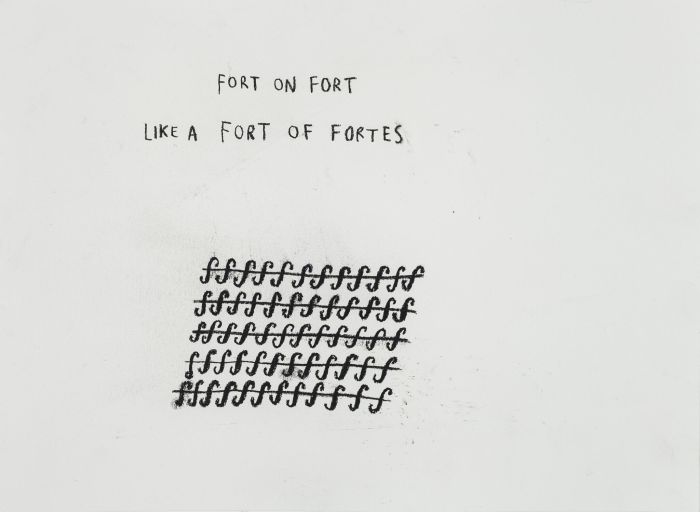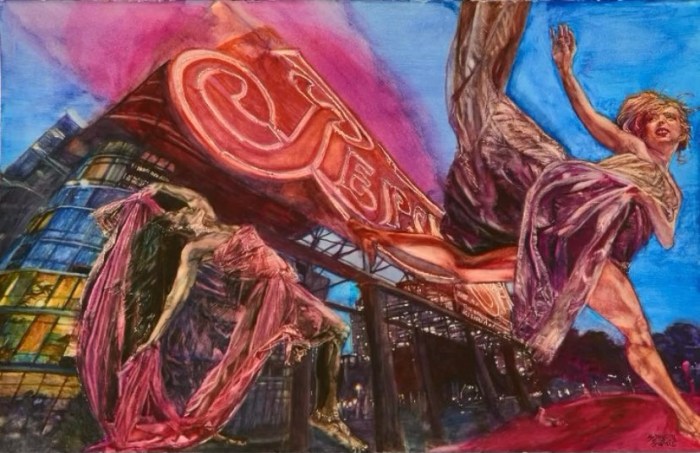Every so often we have reason to recall the classic Dickens line uttered by his Mr. Bumble character in Oliver Twist: “If the law supposes that, the law is a ass.” We think Mr. Bumble’s cogent, albeit ungrammatical observation was borne out once more by the judge who recently issued his denial ruling in response to several petitioners who requested release of the grand jury minutes in the case of senselessly killed Eric Garner in Staten Island last July. State Supreme Court Justice William Garnett, who made the ruling, evidently went the route of the letter of the law trumping widespread public feeling that the grand jury’s decision not to have charges brought in what seemed a clear case of excessive police force, was a glaring miscarriage of justice. Which causes the law to look, in such circumstances, less than stellar.
In the series of controversial confrontations between unarmed African American males and the police, that began with Michael Brown’s death in Ferguson, MO, the Garner fatality was particularly egregious to many, across ethnic lines because, given the benefit of video of what transpired on that Staten Island street, there appeared to be no doubt as to where lay culpability for Garner’s demise. Outrage triggered by the grand jury’s finding of no one to be held accountable in the man’s death, was only to be expected.
That video documentation of the incident is of course the key element of the Garner case that engages us as lay people, when a ruling comes down, such as was delivered by the learned judge regarding release of the grand jury minutes. A bedeviling curiosity leads us to wonder whether the fact that millions of us had viewed that damning video was something the judge allowed to factor in his decision. Or whether that hard reality out here among the people, of a shocking failure in the justice system, had no relevance or pretty much did not exist. It clearly would be difficult to make sense of the ruling, had any weight been given to the significance of the video.
The judge, in his ruling, found that none of the parties who moved for release of the grand jury documents had established “a compelling and particularized need” for said release. The parties who had requested release of the minutes included the city’s public advocate, Letitia James, New York Civil Liberties Union, the Legal Aid Society and the New York Post. Judge Garnett declared them to be, in each instance, not meeting the threshold of “compelling and particularized need,” even noting, with respect to the public advocate, that she had “no legal standing” in the criminal justice system. Curiously, the judge also declared that even had one of the parties met the threshold, it would not stand because “disclosure would have undermined the overriding concern for the independence of grand juries.”
Oddly enough, concern over whether there was indeed an independent, fairly constituted Staten Island grand jury in the Garner case was precisely what the uproar following the panel’s no-indictment decision was all about. Here certainly was a situation where keeping the grand jury proceedings shrouded in secrecy was fomenting distrust of the system. All because concerned folk weren’t, in this instance, clueless listeners to a narrative as spun by dueling principals. A fateful video removed the Garner episode almost entirely from the speculative realm. The people saw and reacted with rightful disgust to what unfolded.
Discussion of the American judiciary hardly ever goes down without mention of judicial activism. Judge Garnett may well be an eminently credentialed jurist who brought spot-on legal analysis to his ruling on grand jury disclosure. If so, one wonders if maybe a case existed for a bit of judicial activism, if Judge Garnett is persuadable that the letter of the law isn’t necessarily the be-all and end-all of judicial correctness. Why, for example, would any aspect of the Garner case proceed, absent acknowledgment of the public’s familiarity with how the cops’ altercation with Garner played out? Does a pretend game — ignoring that the public is already well keyed in to how Garner met his death — somehow repair public confidence that the Staten Island grand jury’s decision all but shattered? Surely not.
The people are the important element here. It seems to us if the people felt that justice was unquestionably denied when the grand jury came up with that bombshell determination, the focus of all cogs in the justice wheel ought to have been getting us back to some sense of reassurance about the process. What is it worth to deny disclosure — never mind an alleged keen eye for what “the law” prescribes — when it only guarantees the people’s continued mistrust?






















